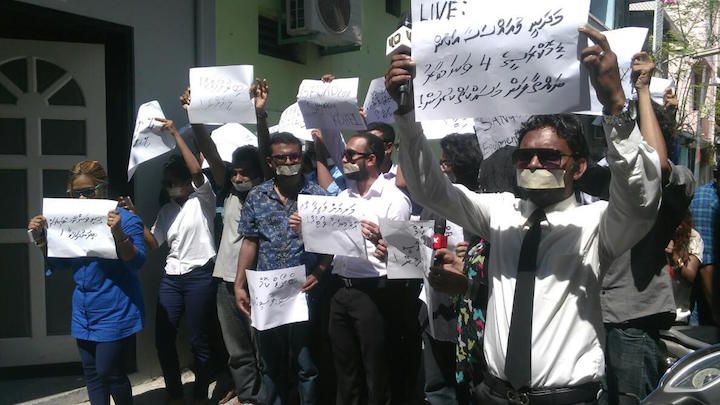Maldives condemned by UN and others over defamation law
The UN, US and human rights groups have urged the Maldivian government to scrap or amend a law re- criminalising defamation over restrictions it imposes on free speech and the press.

10 Aug 2016, 09:00
The United Nations, United States and human rights groups have urged the Maldivian government to scrap or amend a law re- criminalising defamation over its restrictions on free speech and press.
The bill was passed with the approval of 47 MPs in an 85-member parliament dominated by the ruling Progressive Party of the Maldives on Tuesday.
It allows for fines up to MVR2million (US$130,000) and closure of media outlets found guilty of ‘slander’, ‘breaching social norms’ and breaking ‘any tenet of Islam’. Failure to pay the fine can lead to a jail sentence of up to six months.
The bill was introduced in the People’s Majlis soon after an audit report revealed the theft of US$80million by senior government officials of President Abdulla Yameen’s administration.
Become a member
Get full access to our archive and personalise your experience.
Already a member?
Discussion
No comments yet. Be the first to share your thoughts!
No comments yet. Be the first to join the conversation!
Join the Conversation
Sign in to share your thoughts under an alias and take part in the discussion. Independent journalism thrives on open, respectful debate — your voice matters.




